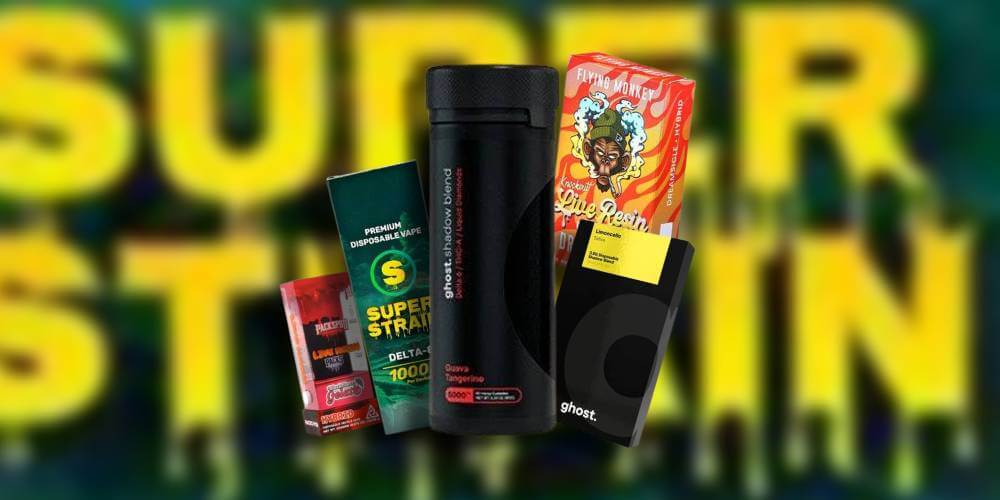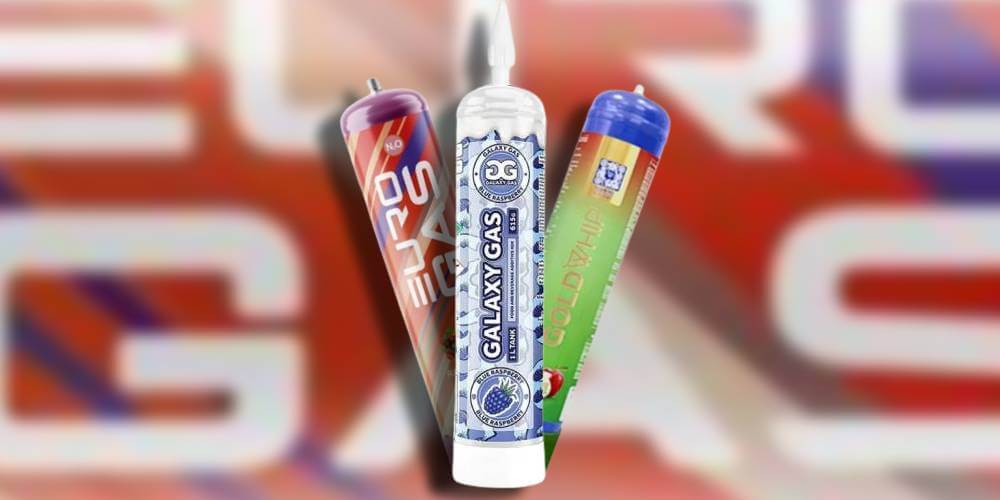Key Takeaways:
- Delta-8 THC is a cannabinoid found in the cannabis plant, distinct from the more well-known Delta-9 THC.
- It offers a milder psychoactive effect, making it appealing to those seeking a more balanced experience.
- Delta-8 THC is legal in many places but is subject to evolving regulations.
- It is available in various forms, including edibles, vapes, and tinctures.
- Always purchase Delta-8 THC products from reputable sources to ensure quality and safety.
What is Delta-8 THC?
Delta-8 THC, or Delta-8-tetrahydrocannabinol, is a naturally occurring cannabinoid found in the cannabis plant. It is an isomer of Delta-9 THC, the compound most commonly associated with the psychoactive effects of cannabis. While Delta-8 THC shares a similar chemical structure to Delta-9 THC, it has notable differences that set it apart.
One of the primary distinctions between Delta-8 THC and Delta-9 THC is their psychoactive potency. Delta-8 THC is often described as providing a smoother, milder high compared to Delta-9 THC. This makes it an attractive option for individuals who want to experience the benefits of THC without the intense euphoria or anxiety that can sometimes accompany Delta-9 THC consumption.
In addition to its psychoactive effects, Delta-8 THC has been reported to offer various potential benefits. Users have noted feelings of relaxation, improved mood, and enhanced focus. However, it's essential to understand that individual experiences with Delta-8 THC can vary, and more research is needed to fully understand its effects and potential applications.
The Origins of Delta-8 THC
Delta-8 THC is not a recent discovery; it was first identified by researchers in the early 1970s. Despite its early discovery, Delta-8 THC remained relatively obscure for decades, overshadowed by its more famous counterpart, Delta-9 THC. It wasn't until recent years that Delta-8 THC began to gain attention in the cannabis community and the broader public.
The resurgence of interest in Delta-8 THC can be attributed to advancements in extraction and manufacturing technologies. With the ability to isolate and concentrate Delta-8 THC from the cannabis plant, producers have been able to create a variety of products that cater to consumers seeking its unique effects. This has led to a growing market for Delta-8 THC products, ranging from edibles and tinctures to vape cartridges and concentrates.
Furthermore, the legal landscape surrounding Delta-8 THC has played a significant role in its rise to prominence. As cannabis laws continue to evolve, Delta-8 THC has found a niche in regions where Delta-9 THC remains heavily regulated or prohibited. This legal gray area has allowed consumers to explore Delta-8 THC as a legal alternative, further fueling its popularity.
Delta-8 THC vs. Delta-9 THC: Understanding the Differences

When comparing Delta-8 THC vs. Delta-9 THC, it's essential to recognize their similarities and differences. Both compounds interact with the body's endocannabinoid system, specifically the CB1 and CB2 receptors, to produce their effects. However, the difference in their molecular structure leads to distinct experiences.
Delta-9 THC is known for its potent psychoactive effects, often resulting in a strong euphoric high. This can be enjoyable for some but overwhelming for others, particularly those who are sensitive to THC. On the other hand, Delta-8 THC provides a more subtle and manageable high, often described as less intense and more clear-headed. This makes it a popular choice for individuals seeking the benefits of THC without the overpowering effects.
Another key difference lies in their legal status. Delta-9 THC is classified as a Schedule I controlled substance under federal law in the United States, making it illegal at the federal level. However, Delta-8 THC is derived from hemp, which is legal under the 2018 Farm Bill as long as it contains less than 0.3% Delta-9 THC. This legal distinction has allowed Delta-8 THC to be sold in many states, although regulations are continually evolving.
The Legal Status of Delta-8 THC
The legality of Delta-8 THC is a complex and evolving issue. As mentioned earlier, Delta-8 THC is derived from hemp and is therefore legal under the 2018 Farm Bill. However, this legality is contingent on the Delta-8 THC being extracted from hemp and not exceeding the 0.3% Delta-9 THC threshold.
Despite its federal legality, some states have taken steps to regulate or ban Delta-8 THC. States like Alaska, Arizona, Colorado, and others have enacted laws that restrict or prohibit the sale and use of Delta-8 THC. It's crucial for consumers to stay informed about the laws in their specific state to ensure they are in compliance with local regulations.
Moreover, the legal landscape for Delta-8 THC is likely to continue changing. As more research is conducted and more is understood about Delta-8 THC, regulatory bodies may update their positions. For now, consumers should exercise caution and prioritize purchasing Delta-8 THC products from reputable sources that comply with current laws and regulations.
How Delta-8 THC is Made
Delta-8 THC is typically derived from hemp, specifically from CBD (cannabidiol). The process involves converting CBD into Delta-8 THC through a chemical reaction known as isomerization. This method allows producers to create Delta-8 THC in higher concentrations than what is naturally found in the cannabis plant.
Isomerization involves using an acid to alter the molecular structure of CBD, transforming it into Delta-8 THC. This process must be carried out in a controlled environment by skilled professionals to ensure safety and purity. After the conversion, the Delta-8 THC is carefully purified to remove any residual chemicals and byproducts.
The final product is then tested for potency, purity, and safety. Reputable producers will provide lab results from third-party testing to verify the quality of their Delta-8 THC products. This transparency is essential for consumers to make informed decisions and ensure they are using safe and effective products.
The Different Forms of Delta-8 THC Products

Delta-8 THC is available in various forms, catering to different preferences and consumption methods. Some of the most popular forms of Delta-8 THC products include:
-
Edibles: Delta-8 THC-infused gummies, chocolates, and other edibles offer a convenient and tasty way to consume the compound. Edibles are popular for their long-lasting effects and discreet consumption.
-
Vapes: Delta-8 THC vape cartridges are designed for use with vape pens and provide fast-acting effects. Vaping is favored for its ease of use and the ability to control dosage with each puff.
-
Tinctures: Delta-8 THC tinctures are liquid extracts that can be taken sublingually (under the tongue) or added to food and beverages. Tinctures allow for precise dosing and are absorbed quickly.
-
Concentrates: Delta-8 THC concentrates, such as dabs and shatter, offer a potent and concentrated form of the compound. These are typically used by more experienced consumers seeking strong effects.
-
Capsules: Delta-8 THC capsules provide a straightforward and consistent way to consume the compound. They are discreet and easy to incorporate into a daily routine.
How to Choose Quality Delta-8 THC Products
When selecting Delta-8 THC products, it's essential to prioritize quality and safety. Here are some tips to help you choose the best products:
-
Check for Third-Party Testing: Reputable producers will provide lab results from independent testing laboratories. These tests should confirm the potency, purity, and safety of the product.
-
Read Reviews: Customer reviews and testimonials can provide valuable insights into the effectiveness and quality of a product. Look for feedback from verified buyers to gauge their experiences.
-
Verify the Source: Ensure that the Delta-8 THC is derived from hemp and not from synthetic sources. Hemp-derived Delta-8 THC is legal and considered safer than synthetic alternatives.
-
Consider the Extraction Method: Products made using clean and safe extraction methods, such as CO2 extraction, are preferable. These methods ensure that no harmful solvents or chemicals are present in the final product.
-
Understand the Ingredients: Check the ingredient list for any additives or fillers. High-quality Delta-8 THC products should contain minimal ingredients and no harmful additives.
Potential Uses of Delta-8 THC
Delta-8 THC is used for a variety of purposes, and many users report positive experiences. Some potential uses of Delta-8 THC include:
-
Relaxation and Stress Relief: Delta-8 THC is known for its calming effects, making it a popular choice for those seeking relaxation and stress relief.
-
Enhanced Focus and Clarity: Some users find that Delta-8 THC helps improve focus and mental clarity, allowing them to stay productive and alert.
-
Mood Enhancement: Delta-8 THC may elevate mood and promote a sense of well-being, making it appealing for individuals looking to boost their overall mood.
-
Appetite Stimulation: Like Delta-9 THC, Delta-8 THC is reported to stimulate appetite, which can be beneficial for those with reduced appetite or specific medical conditions.
Conclusion
Delta-8 THC offers a unique and exciting option for cannabis consumers. With its milder psychoactive effects, legal accessibility in many areas, and a growing variety of product options, Delta-8 THC is making waves in the cannabis world. As with any cannabis product, it's essential to do your research, purchase from reputable sources, and stay informed about the evolving legal landscape. Whether you're looking for relaxation, enhanced focus, or simply curious about trying something new, Delta-8 THC may be the right choice for you.
Frequently Asked Questions
Q1: What is Delta-8 THC? A: Delta-8 THC, or Delta-8-tetrahydrocannabinol, is a naturally occurring cannabinoid found in the cannabis plant. It is an isomer of Delta-9 THC, meaning it has a similar chemical structure but with some differences that result in milder psychoactive effects.
Q2: How does Delta-8 THC differ from Delta-9 THC? A: The main difference between Delta-8 THC and Delta-9 THC is their psychoactive potency. Delta-8 THC provides a smoother, less intense high compared to the more potent and sometimes overwhelming effects of Delta-9 THC. This makes Delta-8 a popular choice for those seeking a more balanced experience.
Q3: Is Delta-8 THC legal? A: Delta-8 THC is legal at the federal level in the United States if it is derived from hemp and contains less than 0.3% Delta-9 THC. However, individual states have their own regulations, and some have restricted or banned Delta-8 THC. It's important to check your local laws before purchasing or using Delta-8 THC products.
Q4: What are the benefits of Delta-8 THC? A: Users report various benefits from Delta-8 THC, including relaxation, improved mood, enhanced focus, and mild euphoria. It is also known to stimulate appetite. However, individual experiences may vary, and more research is needed to fully understand its potential benefits.
Q5: How is Delta-8 THC made? A: Delta-8 THC is typically derived from CBD (cannabidiol) through a process called isomerization. This involves converting CBD into Delta-8 THC using an acid to alter its molecular structure. The process must be conducted in a controlled environment to ensure safety and purity.



